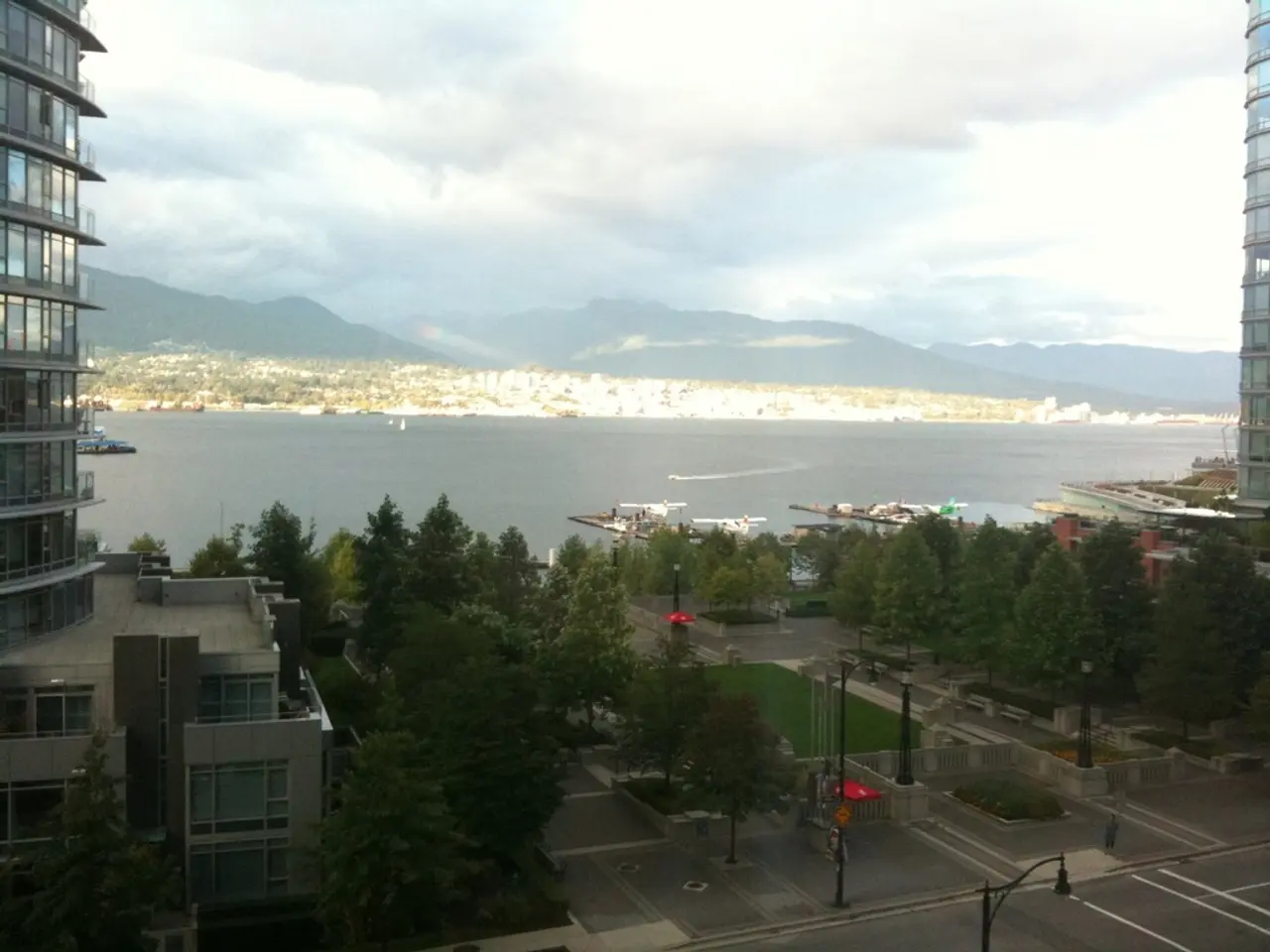Jleeb overpopulation predicament addressed by municipality through presenting immediate remedies:
The Kuwait Municipality has unveiled a comprehensive plan to address the challenges in Jleeb Al-Shuyoukh, a rapidly growing area known for its high population density and housing issues. The strategy encompasses immediate regulatory actions, enforcement measures, and long-term infrastructural development, supported by government coordination and digitization efforts.
### Immediate Solutions
To curb the increasing number of single laborers residing in the area and reduce security concerns, the Municipality has identified seven short-term measures. These measures aim to lower population density to prevent further deterioration of living conditions. Additionally, a draft law is being prepared to prohibit the accommodation of bachelors in certain residential areas, enabling administrative eviction of violators and cutting off electricity and water supplies to non-compliant housing units.
Amendments to Municipal Law No. 33 of 2016 are also underway, allowing for immediate fines for violations and a six-month deadline for landlords or contractors to address infractions. Storage permit approvals are being granted for housing workers on major project sites, and worker accommodations are being permitted within agricultural land holdings and industrial zones.
### Long-term Solutions
The Municipality plans to construct six workers’ cities and 12 labor housing complexes, with a capacity of approximately 400,000 individuals. These infrastructure projects, expected to take two to six years to complete, form part of a long-term redevelopment program projected to span two to five years.
The plans include comprehensive legal reforms and organizational restructuring to improve service delivery and infrastructure in Jleeb Al-Shuyoukh. The long-term redevelopment program aims to provide adequate accommodation alternatives to reduce overcrowding, enhance public service efficiency, and ensure sustainable urban redevelopment.
### Implementation Approach
Legislative changes will be implemented through new laws and amendments empowering the Municipality with enforcement capabilities. Organizational efforts include the physical construction of housing complexes and the active monitoring of compliance, with fines and utility cuts for violations.
The Cabinet has been briefed on these plans, showing high-level government coordination and support. Furthermore, digital transformation initiatives such as electronic housing services for vulnerable populations are being introduced to enhance public service efficiency.
The Municipality is coordinating with the Public Authority for Manpower to link laborers to specific sites of government or private projects. The Municipality will also have the authority to evict violators and cut off utility services to non-compliant properties. Targeted repairs to the area's most affected infrastructure are being implemented.
Property owners with violations are being given grace periods to rectify their legal status once co-ownership records are updated. The Municipality is implementing seven urgent, short-term solutions to address overcrowding, security risks, and high concentration of bachelor residents in Jleeb Al-Shuyoukh.
A new law is being drafted to prohibit bachelors from housing in designated residential areas, and residential unit rentals for non-family purposes are being prohibited. The Jleeb Al-Shuyoukh area is expected to see long-term solutions within 2 to 6 years.
In summary, the Kuwait Municipality is tackling Jleeb Al-Shuyoukh’s issues by combining urgent regulatory actions and enforcement with long-term infrastructural development and legal reforms, supported by government coordination and digitization efforts for better management and compliance. These measures are planned for phased implementation, balancing immediate relief with sustainable urban redevelopment.
Policy-and-legislation changes are being implemented in the Jleeb Al-Shuyoukh area to address its housing issues, including drafting a law to prohibit bachelors from residing in certain residential areas and amending Municipal Law No. 33 of 2016 for immediate fines for violations. Politically, this shows a commitment to general-news concerns, such as overcrowding and security risks, by combining immediate regulatory actions and enforcement measures with long-term infrastructural development and legal reforms.







